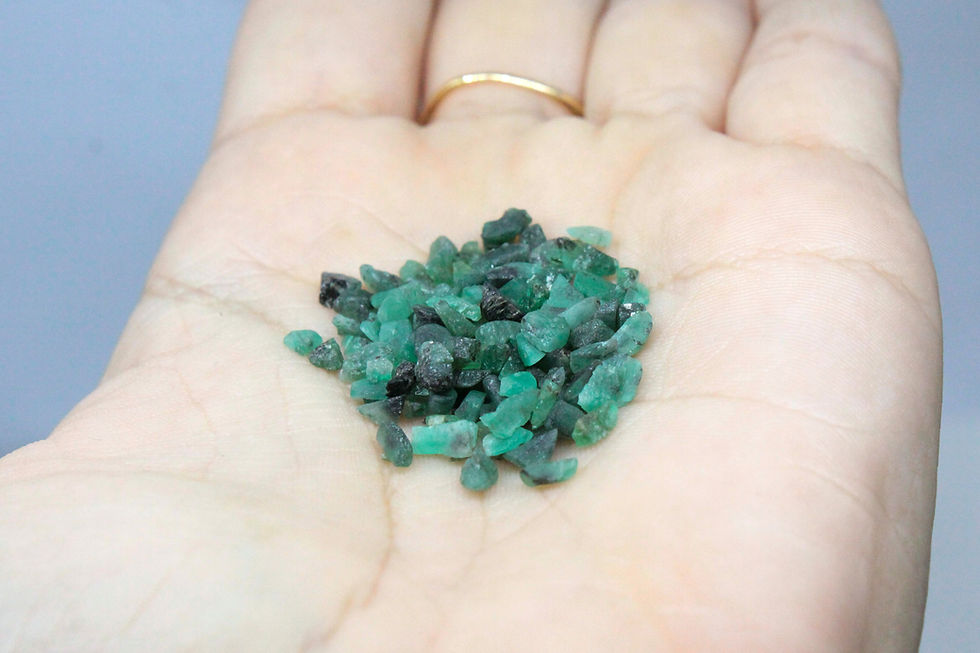Amethyst is a semi precious to precious variety of Quartz crystals that displays purple colouration. The purple colouration is caused by a reaction between iron trapped in the crystal lattice, and gamma radiation that occurs naturally underground. There are many variations of amethyst regarding colour, growth, shape and clarity. Some of the more well known growth types include single points, clusters, chevron, scepters, split growth or "artichoke" and druzy. Each type is symptomatic of the conditions it was subject to at its formation. Amethyst is considered the birthstone for Feburary and has been used in jewellery since ancient Rome, it later became even more of a popular stone in the 16th century when it was considered to aid in curing drunkness and nightmares! Although we can't attest to that, it is a stunning stone. Pieces of amethyst that are pure and with deep colour are often faceted into jewells and then considered a precious stone.
The rarity of amethyst depends on where it was found, its colouration, transparency, purity, growth and whether it displays any optical effects such as Ghosts or Phantoms.





















